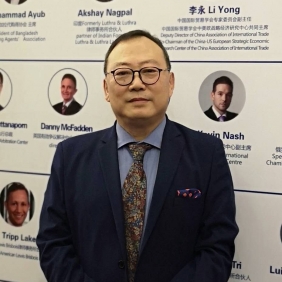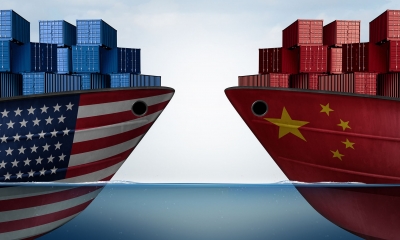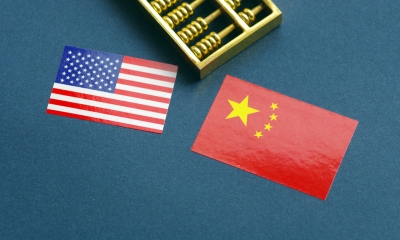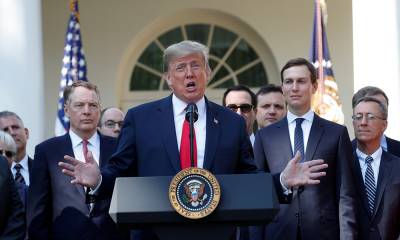Distorted Cognition and Interpretation of China Influence
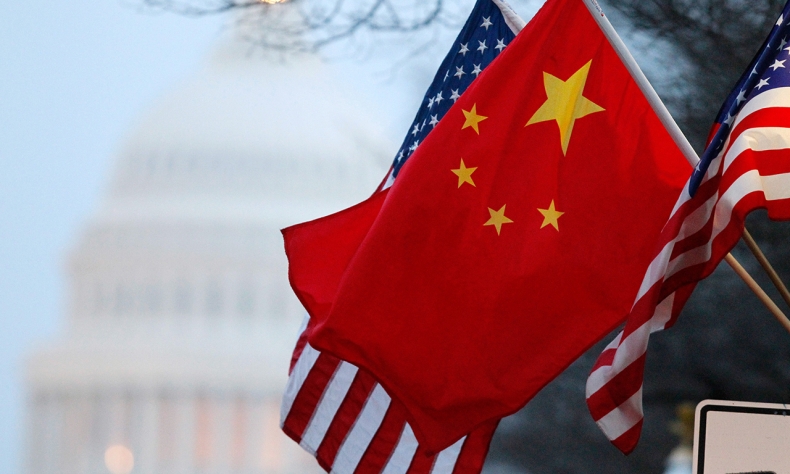
Such Influences of a country should not be viewed as a judgmental threat against the interests of any particular country.
China has influences, as each nation does in the world. The U.S. has influences, too, as it should being the world’s biggest power. In a world so intertwined, so interdependent and so connected, the influences of one country are often the result of inter-country interactions and relationships, almost the same as inter-personal ones.
As an independent sovereign country, be it China or the U.S., influences are the natural part of the country’s efforts to maintain a position vis-a-vis another country, or the rest of the world.
The efforts should be within the norms of internationally accepted rules, for the good of the international community and aim at improving global welfare. Such Influences of a country should not be viewed as a judgmental threat against the interests of any particular country.
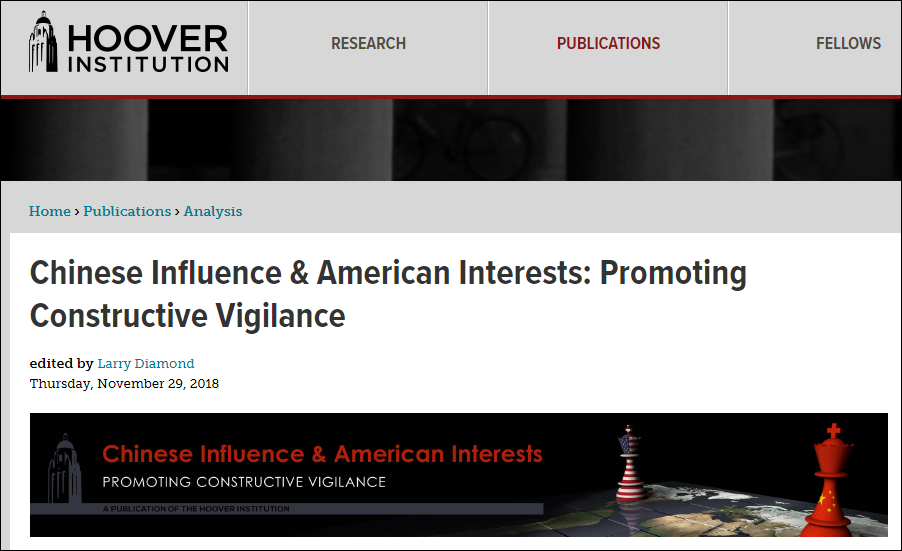
Quite recently, however, a report released by Hoover Institution and the Asia Society’s Center on U.S.-China Relations just did that, reviewing the so-called China influence in the context of American interests. The title, China Influences and American Interests: Promoting Constructive Vigilance, reflected the mentality of some people who are vigilant against China Influences that pose threat to the American interests.
The 213-page report, covering almost all key areas of American society in 8 sections: congress, state and local governments, the Chinese American community, universities, think tanks, media, corporations and technology and research, went at length about China influence activities in the U.S., painting a “threat picture” in similar tones of other reports that talked about security threats or economic aggressions by China.
Browsing through the report, readers could smell the “fear” being mongered with alarming descriptions of China influence with deliberately expanded and distorted interpretations of “examples”.
On page 44 of the report, the example of a graduation speech by a Chinese student Yang Shuping at the University of Maryland in May 2017 was cited as praising the “fresh air of free speech” in the United States, and because of that, “she received an avalanche of email threats and her family in China was harassed.”
The truth was she drew some criticisms because she came from the city of Kunming, where the air is the freshest and she was not telling the truth by saying “I grew up in a city in China, where I had to wear a face mask every time I went outside, otherwise, I might get sick”.
When the influences of one country are linked to the interests of another, particularly when such influences are construed with hostility, something must have gone wrong, either because of distorted political psychology, cognitive distortion, or politically-driven calculations. The implications on readers are not constructive at all.
The report has obvious intentions to overgeneralize the conclusions that were based on mind-reading rather than facts, amplifying the fear of the U.S. being externally controlled.

Susan Shirk, a professor at the University of California at San Diego, says in the section “dissenting opinion on Page 193 of the report, “the cumulative effect of this expansive inventory that blurs together legitimate with illegitimate activities is to overstate the threat that China today poses to the American way of life”.
Comparing China with Russia, the report said, “Except for Russia, no other country’s efforts to influence American politics and society is as extensive and well-funded as China’s.” Winston Lord, a former U.S. ambassador to China, also one of the authors of the report, went even further when speaking to Washington Post, “In terms of the diversity of interfering across the board — it’s even wider than the Russian threat”.
Susan Shirk commented that she felt the report “inflated” the threat of Chinese influence in the United States and interchangeably discussing legitimate and illegitimate activities” detracts from the credibility of the report”.
She says that the report discusses a very broad range of Chinese activities, only some of which constitute coercive, covert, or corrupt interference in American society and none of which actually undermines our democratic political institutions.
Susan Shirk warns “Especially during this moment in American political history, overstating the threat of subversion from China risks causing overreactions reminiscent of the Cold War with the Soviet Union, including an anti-Chinese version of the Red Scare that would put all ethnic Chinese under a cloud of suspicion.
She is concerned that the report, coupled with Trump administration policy, could trigger “overreactions” that are worse than the Chinese influence-seeking itself.

Elizabeth Economy, another author, was also quoted by Washington Post, saying that she found that “while there is cause for concern, much of the drama that surrounds a lot of the discussion is not merited.”
China has been trying to establish harmonious relationships with the rest of the world while maintaining its door open. The influences China is seeking, if any, would be the idea of “shared destiny for the future of mankind”, which is lauded and accepted by international institutions such as United Nations.
China seeks to improve the relationship with the U.S. by adhering to the principles of no conflict, no confrontation, mutual respect and win-win cooperation. Zero-sum cold war mentality in such analysis will not help improve understanding, but deconstruct the basis of trust.
Although it says in the Afterword that “We reiterate: it is absolutely crucial that whatever measures are taken to counteract harmful forms of Chinese influence seeking not end up demonizing any group of Americans, or even visitors to America, in ways that are unfair or reckless”, the report has in effect done more harm than good on the bilateral relations, and many of the judgments, examples and interpretations thereof have served to demonize China.
As in trade, China does not seek surpluses, and in the interactions between China and the U.S., China has no interest to influence American society and way of life. Make no mistake, please.
Li Yong, senior fellow and vice chair of the Expert Committee, China Association of International Trade
 Facebook
Facebook
 Twitter
Twitter
 Linkedin
Linkedin
 Google +
Google +



